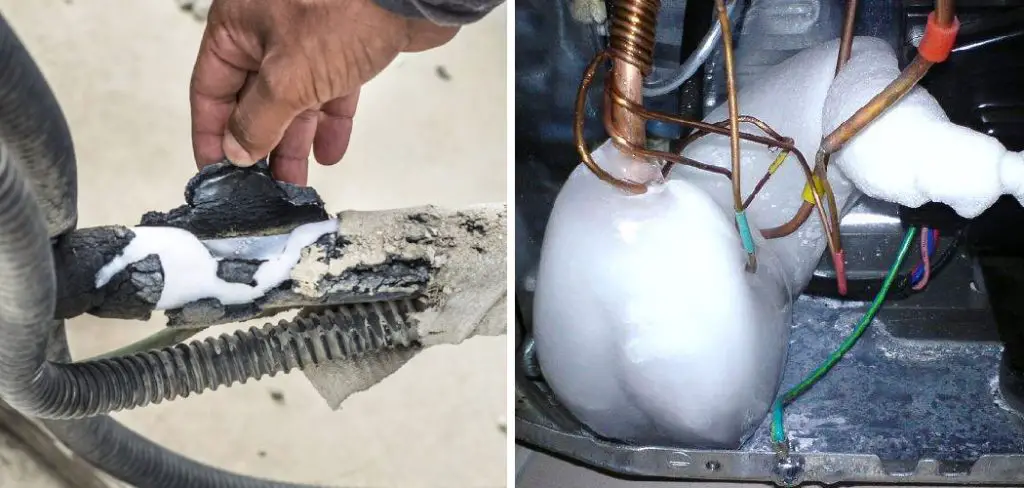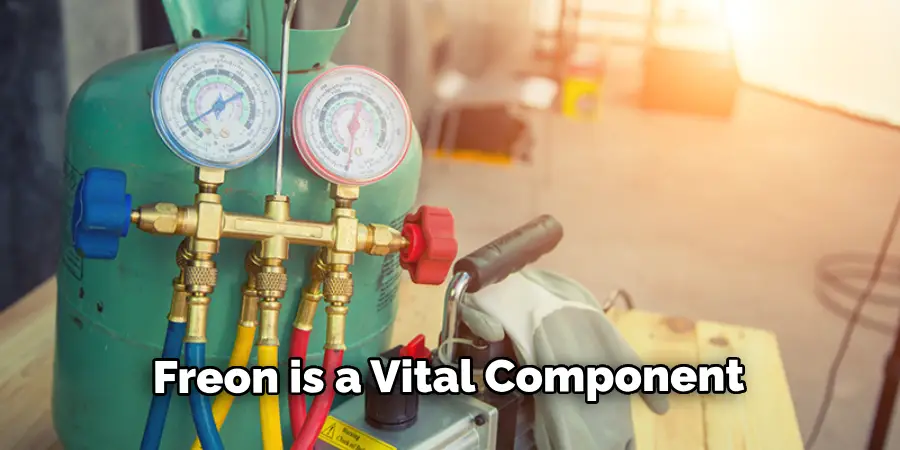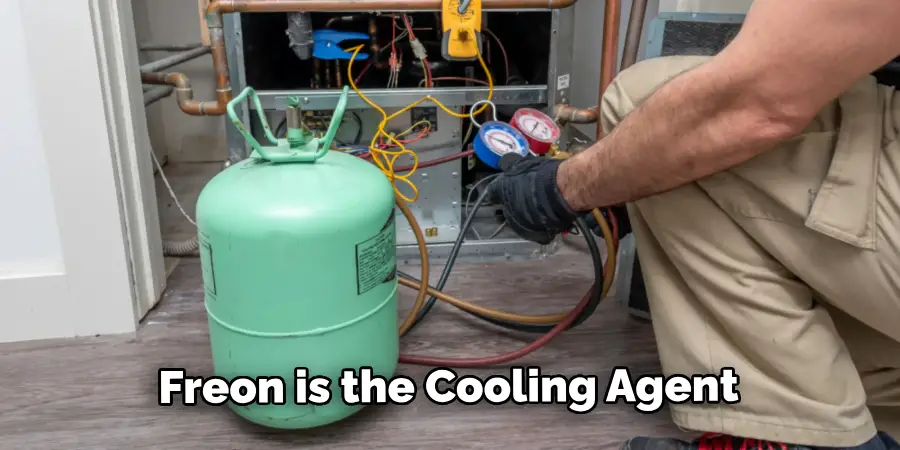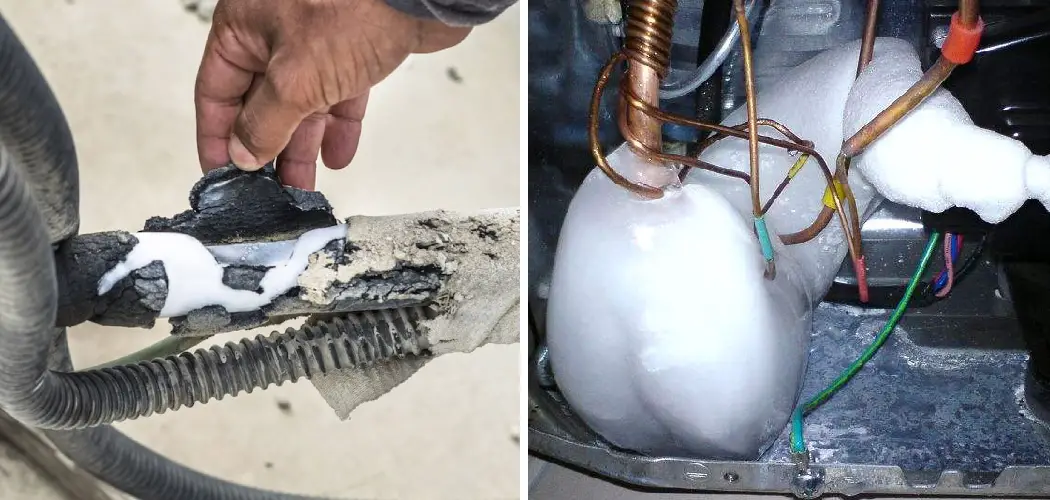Detecting a Freon leak in your cooling system is paramount to maintaining its efficiency and ensuring environmental responsibility. Freon, or refrigerant, plays a pivotal role in the heat exchange process, and any leakage can compromise both performance and contribute to environmental harm.

In this comprehensive guide, we will explore how to know if you have a freon leak. From understanding changes in cooling efficiency to recognizing unusual sounds or odors, homeowners and HVAC users will gain valuable insights into identifying early indicators of a leak.
By delving into the intricacies of recognizing Freon leaks, individuals can take proactive measures to address issues promptly, minimizing the environmental impact and preserving the longevity of their cooling systems. This guide aims to empower users with the knowledge needed to discern whether a Freon leak is present, fostering a proactive approach to system maintenance and environmental stewardship.
Importance of Identifying Freon Leaks
Freon, also known as refrigerant, is a crucial component in most cooling systems. It is responsible for absorbing heat from the air and transferring it to the outside environment, allowing us to enjoy comfortable temperatures indoors. However, if there is a leak in the system, Freon can escape and cause various problems.
If you have a Freon leak, it’s essential to identify it and have it repaired as soon as possible. Here are some reasons why:
- Health Risks: Freon is a colorless, odorless gas that can be harmful if inhaled in large quantities. It can cause dizziness, headaches, and even suffocation in extreme cases. If there is a leak in your cooling system, you and your family could be exposed to these health risks. Identifying and fixing the leak will ensure your safety and well-being.
- Environmental Impact: Freon is a potent greenhouse gas that contributes to global warming when released into the atmosphere. If there is a leak in your cooling system, you are not only wasting energy but also contributing to environmental damage. By identifying and repairing the leak, you can reduce your carbon footprint and help protect the planet.
- Cost Savings: Freon leaks can cause your cooling system to work harder and less efficiently, resulting in higher utility bills. Additionally, if the leak is not fixed promptly, it can lead to more extensive damage and costly repairs or even a complete system replacement. Identifying and repairing the leak early on can save you money in the long run.
- System Performance: Freon is a vital component in cooling systems, and a leak can affect its performance. Your system may struggle to maintain desired temperatures or take longer to cool your home, causing discomfort and inconvenience.

10 Methods How to Know if You Have a Freon Leak
1. An Unusual Smell
One of the most common ways to detect a Freon leak is to be aware of any unusual smells coming from your air conditioning unit. Freon has a distinct odor that can be described as smelling like ether or chloroform. If you notice this smell, it could indicate a Freon leak and should be addressed immediately.
2. Ice Formations
Another way to detect a Freon leak is to look for ice formations on the pipes or coils of your air conditioning unit. This can happen when there is not enough refrigerant in the system, which can cause the temperature inside the unit to drop below freezing and result in ice forming on the pipes and coils.
3. High Electricity Bills
If you have noticed an increase in your electricity bills, it could be due to a Freon leak. When there is not enough refrigerant in the system, it has to work harder than normal, resulting in higher energy costs. If you notice an unexplained increase in your electricity bills, it may be worth having your air conditioning unit checked for a Freon leak.
4. Low Airflow
If there is not enough refrigerant in the system due to a Freon leak, it can also affect the airflow of your air conditioner. The lack of refrigerant will cause the compressor to work harder than normal and result in less air being circulated through your home or business premises. If you notice that there is less airflow than usual coming from your AC unit, this could indicate a Freon leak and should be investigated further.
5. Strange Noises
Another way to detect a Freon leak is by listening out for any strange noises coming from your AC unit such as hissing or bubbling sounds. This can occur when there is not enough refrigerant in the system due to a Freon leak and should be addressed immediately before any further damage occurs.

6. Poor Cooling Performance
If you find that your air conditioner isn’t cooling as well as usual, this could also indicate that there is a Freon leak present somewhere within the system, which needs addressing immediately before any further damage occurs. A professional technician should be able to locate and repair any leaks quickly and efficiently so that you can get back up and running as soon as possible with minimal disruption or expense involved!
7. Visible Refrigerant Leaks
In some cases, it may even be possible for you to spot visible signs of refrigerant leaking from your AC unit – such as liquid dripping from pipes or joints – which would indicate an immediate need for repairs! It’s important, however, that if you do spot any visible signs of leaking, then you contact an experienced technician right away who will have all of the necessary tools and equipment needed to identify and fix any issues quickly without causing further harm or damage!
8. Pressure Gauge Test
A pressure gauge test can also help determine whether or not there is an issue with low levels of refrigerant present within an AC system, which could point towards a potential Freon leak being present! A professional technician will use specialized equipment such as pressure gauges attached directly onto pipes leading into/out of components within an AC system – they will then measure how much pressure exists within these lines – if readings are lower than expected, then this could suggest that either too much coolant has leaked out (or been lost) over time leading towards potential problems down-the-line if left unchecked!
9. UV Dye Test
Another way technicians may check for potential leaks within an AC system involves using UV dye tests – this involves adding specialized dye into existing coolant lines which will change color under certain lighting conditions if exposed outside (such as through cracks/holes etc).
This type of test requires specialist equipment but can provide very accurate results when used correctly by trained professionals – helping them pinpoint exactly where problems exist so they can make repairs accordingly!
10. Thermal Imaging Camera Test
The final method technicians may use when checking for potential leaks within an AC system involves thermal imaging cameras – these devices measure infrared radiation emitted by objects (in this case, pipes/joints, etc), which allows technicians to see what’s going on ‘underneath’ surfaces without having to take anything apart physically – allowing them to diagnose issues quickly & effectively whilst minimizing disruption/damage caused during repair works!

Things to Consioder When Identifying a Freon Leak
When it comes to identifying a freon leak, there are several things to consider. Freon, also known as R-22 or chlorodifluoromethane, is a colorless gas commonly used in air conditioning units and refrigerators. It is important to note that freon leaks not only deplete the ozone layer but can also be harmful to human health.
Strange Smells
One of the first signs of a freon leak is a strong, pungent smell. Freon has a distinct odor that is often described as sweet or musty. If you notice a strong smell coming from your air conditioner or refrigerator, it could be an indication of a freon leak.
Hissing Sounds
Another telltale sign of a freon leak is hissing sounds coming from your unit. Freon gas escaping through a small hole can create this sound, similar to the sound created when air escapes from a balloon. If you hear this type of sound, it could be an indicator that there is a leak in your unit.
Difficulty Cooling
If your air conditioning unit or refrigerator is having trouble maintaining cool temperatures, it could be due to a freon leak. Freon is the cooling agent that helps regulate temperature in these appliances. When there is a leak, the unit will struggle to reach and maintain the desired temperature.

Conclusion
All in all, it is important to stay vigilant and pay attention to small details when it comes to freon leaks. If the air conditioning system isn’t performing as well as it used to, there may be a leak from a worn-out seal or problem with one of the components in the air conditioning system itself. In some cases, you will likely need professional help in order to check for and repair a freon leak.
Keeping up with regular maintenance and having a good understanding of what signs to watch out for can make all the difference when it comes to preventing costly repairs down the line. Understanding how to know if you have a freon leak can save you time and money – so take the time now to understand the warning signs!

